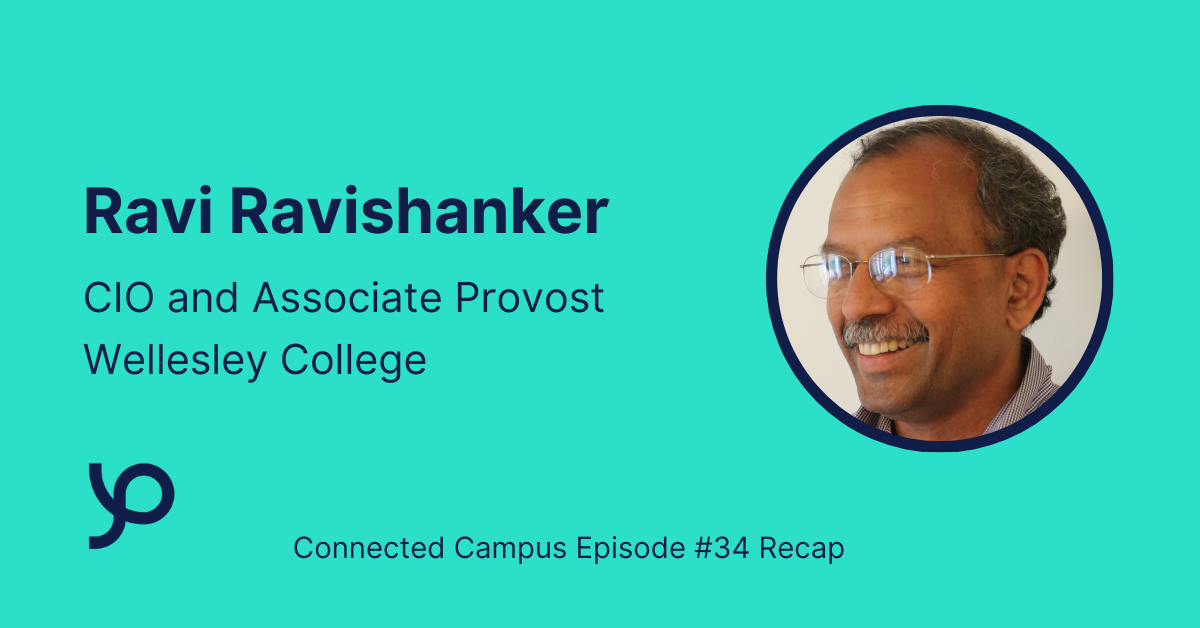The digital era is redefining the ways we teach, learn, and connect. Sitting at the epicenter of this is the digital transformation in higher education. Championing this juncture of technology and education is Ravi Ravishanker, Chief Information Officer and Associate Provost at Wellesley College. In his recent Connected Campus podcast interview, he unpacks the phenomenon of digital transformation and its impact on campus buy-in and change management, pedagogical excellence, and the true meaning of a connected campus.
(Compassionately) Navigating Digital Terrain
Higher ed’s digital transformation is complex – from digitizing information to providing students with self-service capabilities to automating departmental workflows – to name a few. According to Ravishanker, ensuring that the entire community – including faculty, staff, and students – is prepared for change is paramount. His advice? It’s not just about implementing new or updated technology; it’s about aligning initiatives with core campus culture and the diverse needs of departments, all while balancing budgets and ensuring compliance.
In the last few years, we have seen tremendous changes in technology that require us to be very different from the way we did business before.
Ravi Ravishanker, CIO & Associate Provost, Wellesley College
Blending Technology & Pedagogy
Amidst this technology transformation, Ravishanker identifies empathy as a central theme. Ensuring digital solutions are tailored to the needs and workflows of the higher ed community help to make student and staff experiences seamless and user-friendly.
Ravishanker points to the distinct fusion of IT and library systems at Wellesley and details how, working in tandem, technology and pedagogy deploy the best possible student experience. He credits the synergy of IT and academic departments in launching and maintaining Massive Open Online Courses (MOOCs) at Wellesley, enabling students to experience new learning methods. As the team at Wellesley continues honing this new modality, the essence of their residential campus remains intact, demonstrating that technology can (and does!) amplify and democratize the rich liberal arts education experience.
The Connected Campus: Intentionality, Balance, and Boundaries
The reality is, as digital transformations intensify, campus communities continue forging connections asynchronously, rapidly, and at greater scale. Yet, this constant stream of connectedness introduces a new layer of complexity: the erosion of traditional, face-to-face interactions, a key piece to Wellesley’s residential campus culture. The initial excitement of boundless connectivity generates a feeling of introspection. For Ravishanker, a true connected campus balances the convenience of technology and the authenticity of face-to-face connections that define campus culture. And, as institutions reset post-pandemic, the future of higher ed lies in this delicate equilibrium where digital transformation enriches – instead of replaces – the student experience.
Key Takeaways
For Wellesley College and institutions alike, digital transformation means openly embracing the future. For Ravishanker and his team, it’s not just about implementing technology and keeping up with the times, it’s about fostering a culture where technology and remarkable student experiences coexist, paving the way for a brighter, more connected future.
